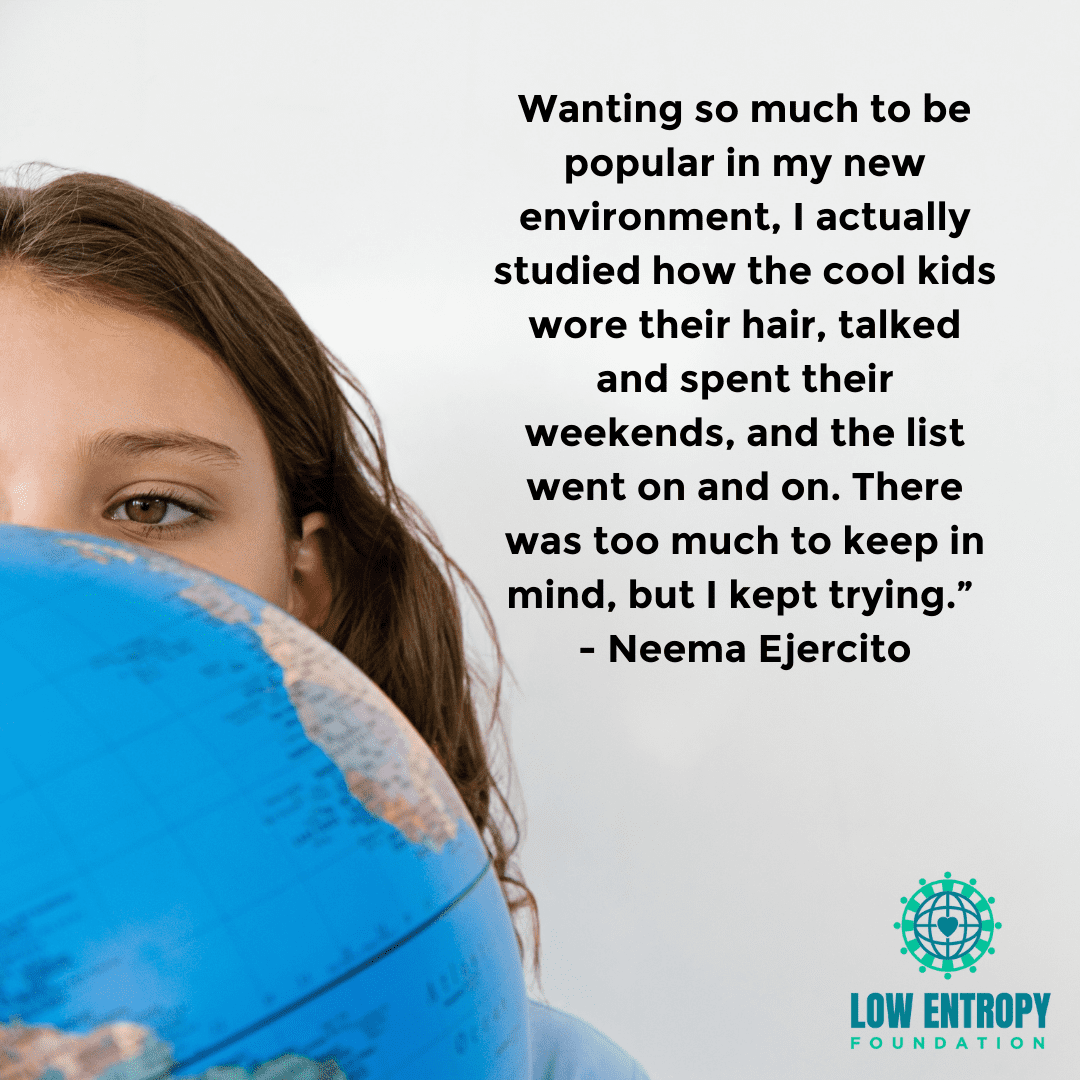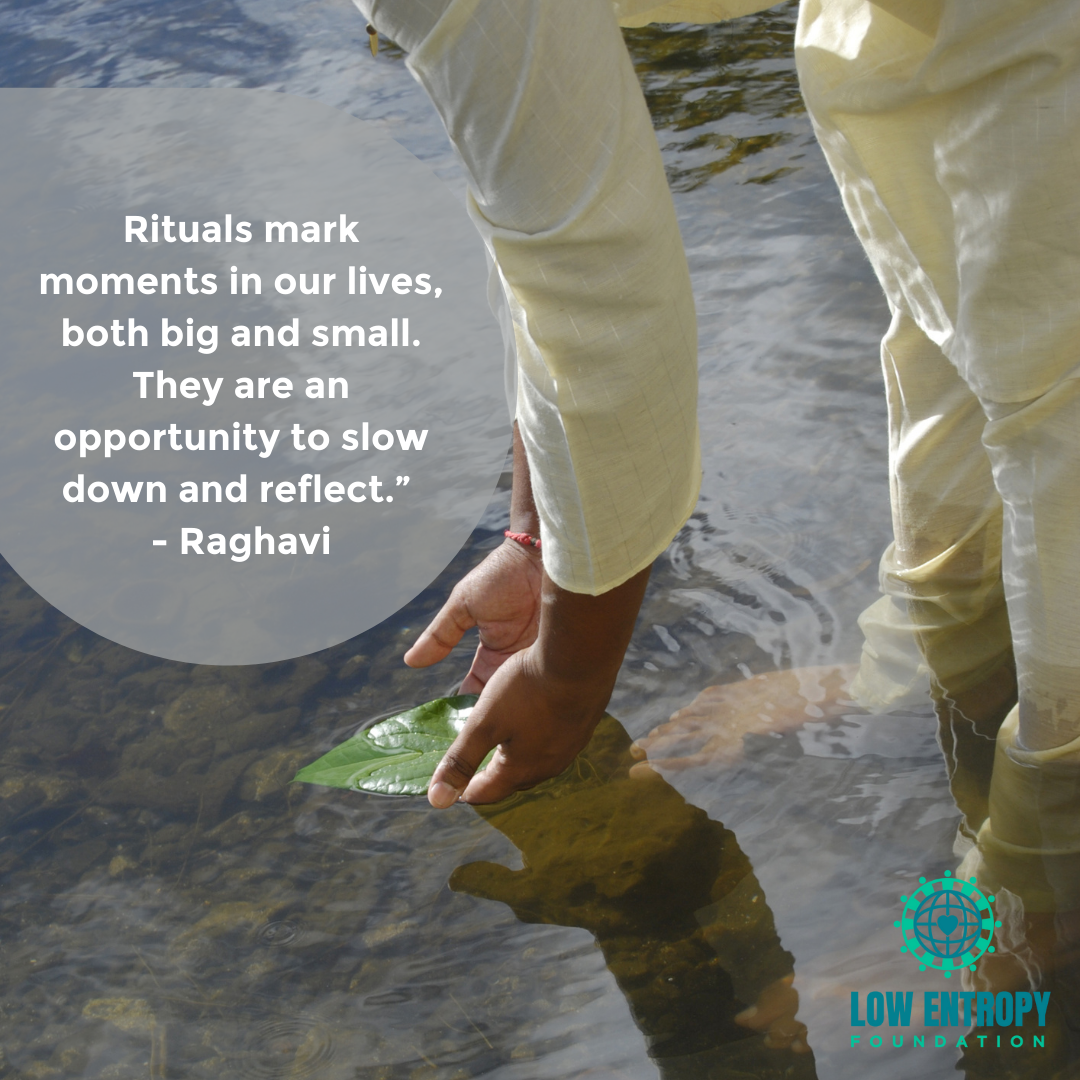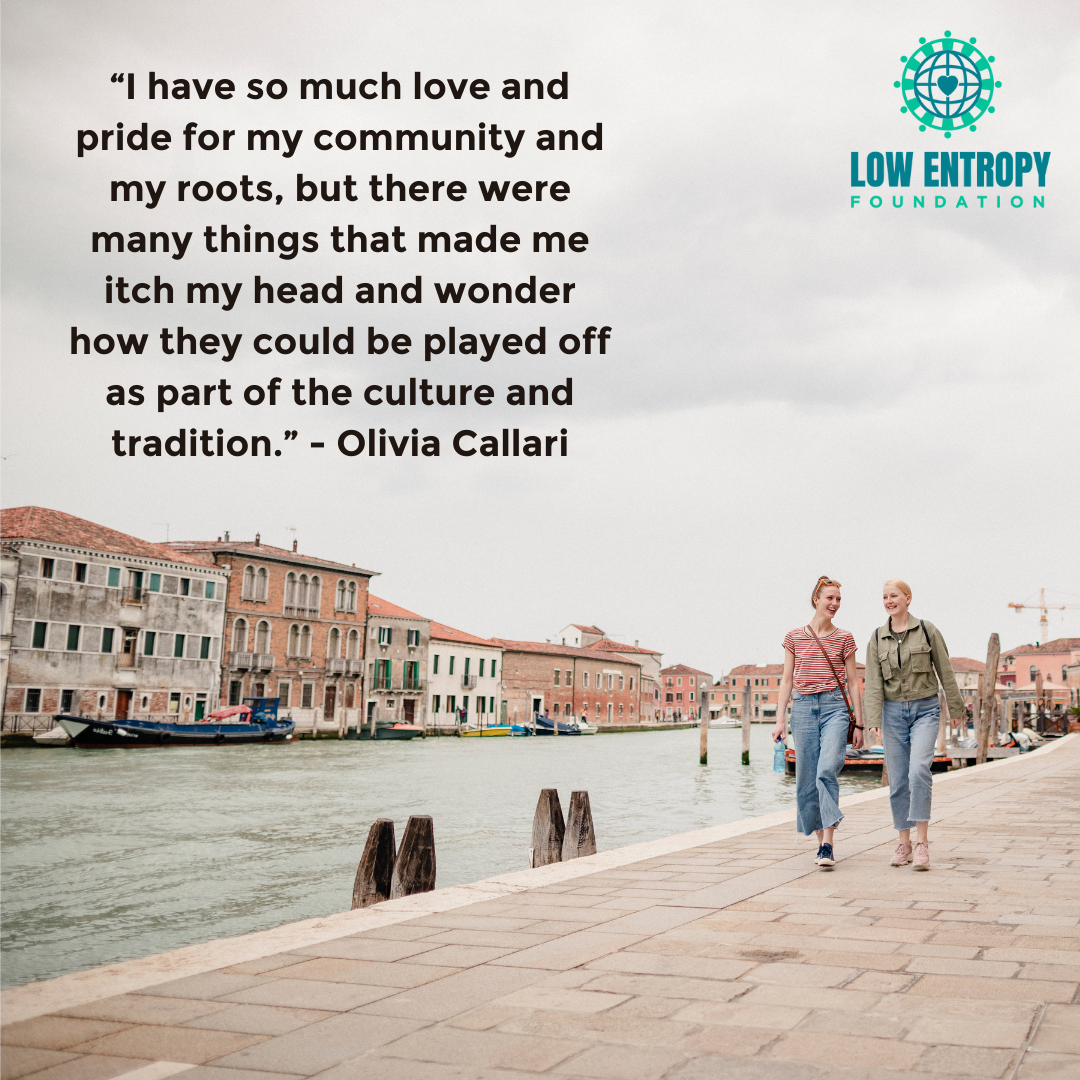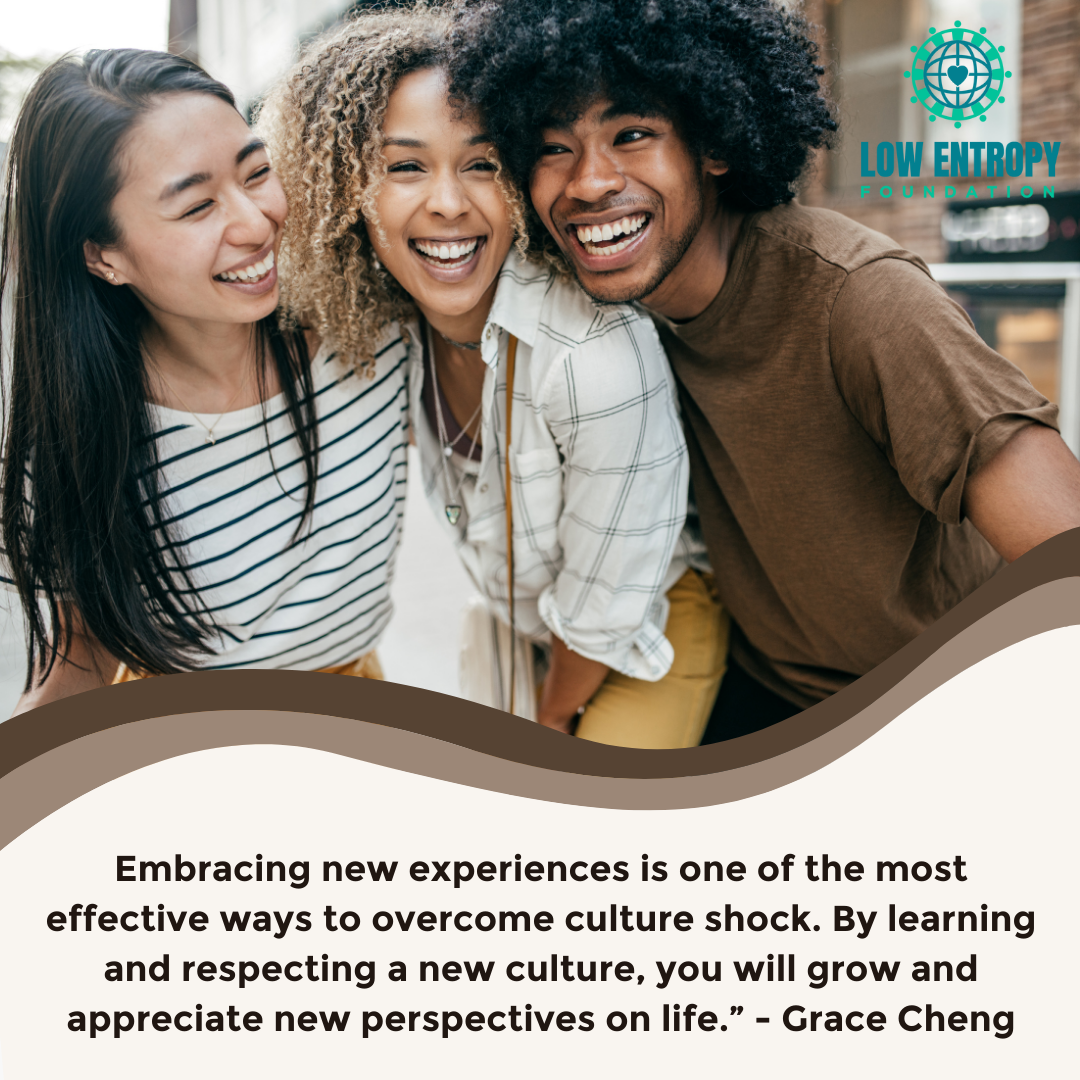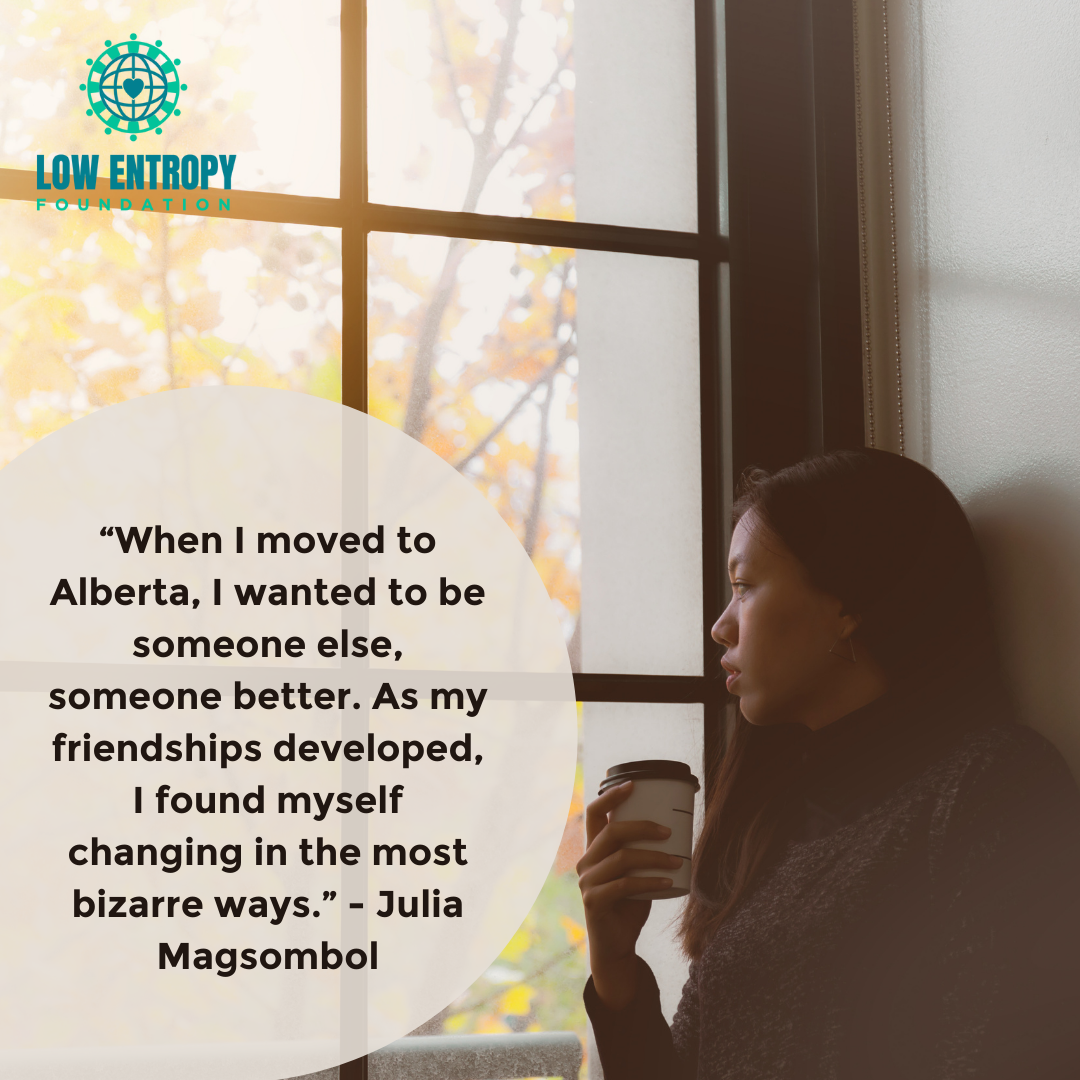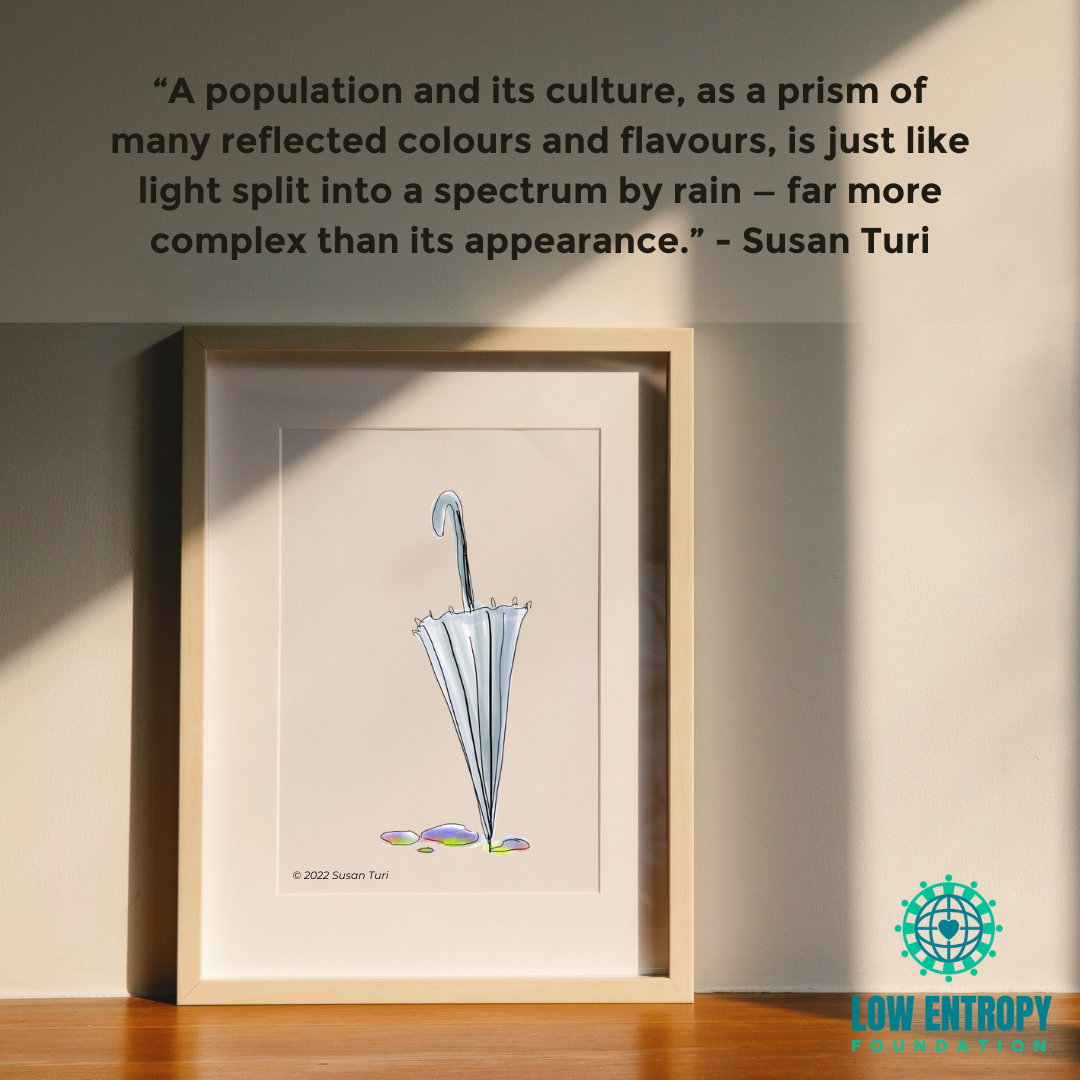Neema Ejercito (she/her/hers), Low Entropy Volunteer Writer
My first cross-cultural experience was when my family and I moved to Hong Kong from the Philippines when I was in Grade 7. I remember looking across the school playground during recess with a new Malaysian-Danish friend (who became one of my best friends) and finding it amazing that, in my classroom alone, so many different cultures were represented. My best friend alone represented at least three, with Hong Kong culture being one of them, since she lived there for a couple of years already.
I remember feeling overwhelmed with the opportunities that our move opened. For example, instead of choosing among the top three universities in the Philippines to go to after high school, I could now choose among the universities in the U.S.! That’s where my international school was prepping students to apply. I was not only overwhelmed with the differences in cultures geographically: the popular culture that I had only read about in Sweet Dreams or Sweet Valley High became my reality.
In my experience growing up in the Philippines, one was popular because they were smart, sporty or active in a student council. Wanting so much to be popular in my new environment, I actually studied how the cool kids wore their hair, talked and spent their weekends, and the list went on and on. There was too much to keep in mind, but I kept trying.
Fast-forward to my next cross-cultural experience in Japan, when I won an exchange program scholarship to study there for a year during my last year in university in the Philippines. I had found the exchange program at the student affairs office of the university. I had come home after high school graduation in Hong Kong feeling the itch to travel again.
After receiving the scholarship, I was again excited by the thought of living in a different country and learning about different cultures, but also being immersed in a more homogenous culture than Hong Kong. In high school I learned Mandarin and Spanish, but in Japan I focused on Japanese. I was initially going to study sociology there, in connection with my university major, social sciences. After a week of classes, however, I felt that I would maximize my immersion into Japanese culture by focusing on the language. When I took the language aptitude test so that the school would know which class level to place me, I found that, because of my Mandarin background, I could understand the meanings of Japanese kanji. Building on my language background, I felt I could use my language skills in Mandarin to give myself a leg up on my beginner Japanese. As a result, I was actually placed in the intermediate class.
Although I was doing well academically, my socio-cultural experience suffered. Having experienced a popularity failure in high school, I embarked on being popular in my new cross-cultural experience. By the time the year was over and it was time for me to go home, I had hurt a lot of people, including myself. It took years of accepting that the one year in Japan wasn’t my lifelong reality, and that I had to move on. I found many years later, when I watched Leonardo DiCaprio in The Beach, that my Japan experience was acutely similar to his character’s Thailand experience.
I have since lived in San Francisco and traveled to so many other countries aside from the ones I previously mentioned. Some of the more unusual places I’ve been to are Iceland and Machu Picchu. In the year before the pandemic hit, I actually traveled to four different countries: France, the U.S., Japan, and the UAE.
When my family and I moved to Vancouver in April last year, I felt very confident about my openness to another cross-cultural experience. I was mistaken. Let me try to explain it by what people have told me about their experiences with the weather. I thought that my new friends who had recently moved from Calgary and from Korea didn’t have to adjust to the cold like me. But they both described different ways of feeling the cold weather from where they came from. Cold weather wasn’t the same for everyone across the board. Similarly, my cross-cultural experiences weren’t necessarily a one-size-fits-all adjustment, especially since my move here now involves me as a mother and wife. This is so different from when I was a teen or a single adult.
I also took for granted that speaking English well meant that I wouldn’t really need such a big cross-cultural adjustment here. I am still making sense of my adjustment, and oftentimes it gets complicated with the pandemic, the weather and, basically, life as I know it. There have been days I find myself hating this muddled period that doesn’t move according to my preferred timeline. But perhaps this seeming lack of clarity is what I’ve got to accept so that I can keep moving forward.
—
Neema Ejercito is a professional writer, director and creative writing mentor. Her 3D edutainment series for beginning readers, AlphaBesties, is showing in YouTube Japan and Prairie Kids. When she’s not writing or mentoring, she manages her household with her very supportive husband and three children.







